f you’ve ever wondered what the best daily routine to lose weight is, as registered dietitians and weight loss experts we’re sharing the habits we’ve found to be especially helpful for not just shedding belly fat, but for keeping it off as well. These habits are science-backed and what’s encouraging is that you don’t have …
The post The best daily routine to lose weight for good appeared first on Nutrition Twins.
f you’ve ever wondered what the best daily routine to lose weight is, as registered dietitians and weight loss experts we’re sharing the habits we’ve found to be especially helpful for not just shedding belly fat, but for keeping it off as well.
These habits are science-backed and what’s encouraging is that you don’t have to follow a daily routine to a tee, instead incorporate these habits in your own routine to reap the lasting weight loss rewards. The best parts of your daily weight loss routine begin in the morning.
How can I immediately jumpstart my metabolism when I wake up (for lasting weight loss)?
Drink 16-24 ounces of water immediately upon waking. While we have nothing against coffee and appreciate that coffee provides health benefits, it doesn’t ultimately make you less tired as you may think, rather a daily habit masks sleepiness, and over time may interfere with your body’s ability to produce its own — and it does release cortisol, the stress, aka “belly fat” hormone. This is not the case for water which is like a spark plug for every cell in the body, which requires water to function.
Think of it this way…
Overnight, you lose water through breathing, perspiration, and urination, all of which lead to mild dehydration that prevents your body from functioning at its peak. This mild dehydration contributes to sluggish digestion; a slowed metabolism; headaches; and hunger, as the body confuses thirst for hunger.
Your body is 60-70 percent water and every process in the body takes place in water—and relies on it, once you drink water your body receives the hydration it needs to function optimally– your metabolism starts humming, the digestive tract “wakes up” and bowels start moving, toxins are flushed, hunger is minimized, and dehydration headaches won’t derail your exercise plans, you get an energy boost, and you prevent mood dips1.
All of these factors make you feel healthier and lighter and you have more energy to start your day, exercise, and burn calories, making water the best morning drink to lose weight fast.
Here’s what we do:
Immediately upon waking, we drink 16-24 ounces of water. We’re religious about it because if we don’t do this, we’re sluggish all day and we crave energy. Tammy keeps a glass of water at her bedside for as soon as she wakes up. Try it for yourself! Once you start to drink water in the morning, you’ll crave it. And if you watch the video above at about 2 minutes 12 seconds, you’ll see that Lyssie calls Tammy out for her embarrassing escapades when she travels to get her water.
Does eating breakfast help you to lose weight?
Yes… and no! If you’ve been confused about whether eating breakfast should be an essential part of your best daily routine to lose weight sustainably, there’s a good reason.
Research shows it both ways, so while some research shows that eating breakfast regularly may help you to lose weight and maintain it, and other research shows there is no weight loss benefit to eating breakfast and that skipping breakfast may be helpful for weight control, what we’ve found based on science and on working with hundreds of clients is that individuality is key here.
However, there are some critical components for lasting weight loss when it comes to eating your first meal of the day, whether it’s at breakfast time, or a bit later.
How do you know if your first meal should be early or a bit later?
If you start your day with 16-24 ounces of water and you don’t eat your first meal until a few hours after that and find that you’re hungry and/ or can’t focus until you eat that meal, or that you end up feeling hungry all day because you didn’t have breakfast early, eating breakfast early is likely for you.
While noticing how you respond to skipping an early first meal often gives you the answer as to whether you should eat breakfast, we find that sometimes we need to dig deeper with our clients to determine if they should eat an early first meal.
We examine their eating patterns and what they are eating on a typical day as sometimes what they ate the day before impacts how their body responds the next day. We also look at how they tend to react to food from a hormonal perspective, and we look at other lifestyle habits that impact this, like how they sleep and manage stress, as well as their hormone response since this help to give us a better answer.
With some of our clients, it’s clear they don’t need breakfast—if you start your morning with water, drink some more throughout the morning and reach your first meal feeling energized, and eat that meal and go on about your day without feeling overly hungry, waiting longer to eat breakfast (or whatever you want to call your first meal) is likely ideal for you.
Note: sometimes skipping breakfast may feel great for you, but it’s especially important, particularly for women to be aware that intermittent fasting is often not ideal for a women’s body as it can over-stress the delicate hormonal balance.
What should your first meal contain to lose belly fat for good?
Whether you’re eating an early breakfast or eating a later first meal (as people who are on intermittent fasting often do), the critical weight loss components at your first meal of the day are including at least 20 grams of protein and a wholesome source of fiber.
This is the minimal amount of protein that is necessary to stabilize blood sugar levels, provide satisfaction and prevent overeating at your next meal (and for staving off excess snacking). Without these two important components (protein + fiber) that together, provide stable energy levels and satisfaction without crashes, the time of the first meal is irrelevant as the key components for weight loss are missing.
(Note that while 20 grams of protein is the minimal amount of protein necessary, more is not necessarily better. Individual needs vary.)
Two great fiber-rich options are oatmeal and sweet potato with skin.
These wholesome fiber-filled foods provide gradual energy sources for the muscles and brain, especially when combined with protein. It’s also important to note that many weight loss hopefuls think they need to skip the wholesome carb, which is fuel for the brain and muscles.
Skipping the wholesome carb typically ends up backfiring as the brain craves energy, resulting in intense sugar cravings later in the day, as the body craves a quick pick-me-up. The key is to choose a small portion of wholesome carbs, you don’t want to overdo it. For example, it only takes about one-half cup of cooked oatmeal for women & 2/3 cup of cooked oatmeal for men.
Fun fact: When it comes to pro-breakfast research, much of the research was funded by companies that have a vested interest in promoting breakfast. For example, the slogan, “Breakfast is the most important meal of the day” was invented by John Harvey Kellogg to sell their new breakfast cereal (yep, if you were thinking Kellogg’s, you’re right).
That’s not to say that eating breakfast doesn’t help many people to lose weight and keep it off. We find it to be critical for our clients with PCOS (polycystic ovarian syndrome), as well as many others.
How can I eat less at a meal without feeling hungry?
To achieve sustainable weight loss, the best daily routine incorporates techniques to prevent hunger with fewer calories. Here’s how to do it:
Water recommendations: One of the best ways to feel less hungry is to make sure you’re not dehydrated. As we mentioned, this means you need to drink 16-24 ounces of water when you wake up (experiment to find your sweet spot) and then continue sipping throughout the day.
The brain mistakes thirst for hunger and if you’re not starting your day off by drinking water and consistently getting fluid throughout the day (in between meals), you’ll be likely to overeat at your first meal –and throughout the day.
We recommend drinking 16-18 ounces one-half hour before your meal. In fact, research has shown that increasing your water intake can slightly increase your metabolism. One study looked at young overweight women drinking 16.9 ounces of water for 8 weeks, 3 times a day, one-half hour before meals. They lost significantly more body fat than without water.
We’ve noticed that some of our clients, need to drink water before the meal, not with it, as it dilutes their stomach acid too much for efficient digestion including nutrient absorption.
What else can I add to my daily routine to lose belly fat faster?
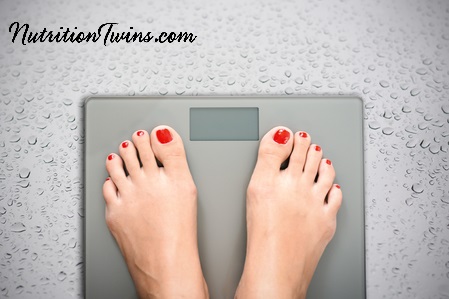
Deep breathing– If you’re hoping to lose more belly fat, this can be especially helpful.
How does deep breathing help you to eat less?
Deep breathing is one of the best habits you can incorporate into your daily weight loss routine. It helps to lower stress by stimulating the parasympathetic nervous system (the body’s “rest and digest” system) and taking you out of the “fight or flight” mode, thereby lowering cortisol, a.k.a. the belly fat hormone, as well as helping to take the edge off so you can make a more rational decision about what you’ll eat.
With practice, even just for a few minutes a day, we’ve found this extremely helpful, and our clients have witnessed what the research shows—that tempering their stress lowers cravings and cortisol and other hormones to make weight loss easier. Start by practicing 6 rounds of breathing before a meal, before bed, and/ or when you feel an intense craving hit you.
How does the “rest and digest” mode help fight cravings, inflammation, and belly fat?
Practicing deep breathing before a meal takes your body out of “fight or flight” mode and into the “rest and digest” mode. This is critical for weight loss (and for health) because when we’re in “fight or ‘flight” mode, which is the mode our bodies go in when we sense a threat, it releases a series of hormones to help us to prepare to run from a tiger.
This is the mode that we are in much of the day in our fast-paced, hectic lifestyles when the body prioritizes its energy to the muscles and digestion is shut down.
This means that you won’t release digestive juices and enzymes that are necessary to break down food. Large pieces of food will sit in your stomach, undigested, allowing bacteria to ferment them, creating gas and indigestion, irritating the gut lining and creating inflammation, which is linked to weight gain and a more difficult time losing weight.
Why is this happening?
Since you’re not digesting your food appropriately, your body will absorb most of the calories but not adequately break down and assimilate the nutrients that you need for a healthy body and help you make the most of the calories you consume. You end up absorbing all these calories while cortisol (the belly fat hormone) is still turned on. OY!
But when you get into rest and digest mode from deep breathing, your body will shut down cortisol, release enzymes for digestion, absorbing nutrients (not just calories), as you get the nutrients your body needs.
Not only will you have less indigestion and bloating, as well as undigested food particles that create inflammation, but you’ll also be more at the moment and prepared to eat more slowly, chewing more slowly so that you can give your brain more time to realize it’s received food.
It takes 20 minutes for the brain to realize you’ve eaten, and this is critical to prevent overeating as you can eat a lot of food in the 20 minutes it takes for your brain realizes you’ve eaten. Plus, absorbing the nutrients your body needs will help to fight cravings.
Complete 6 rounds of deep breathing before a meal to fight cravings and inflammation.

Here’s how to do it:
Breathe in through your nose for a count of 4 (as if you’re taking a deep breath of apple pie), hold it in your lungs for 4 counts, and breathe out through your mouth as if you’re fogging a mirror for a count of seven. That’s one round. As you do this put one hand under your armpit and the other on your belly button to give your body feedback. The goal is to have your belly fill up and expand when you breathe in the apple pie and feel your belly empty out as you fog the mirror.
What do we do?
Lyssie practices deep breathing before dinner (6 rounds), if she has an intense craving (typically just inhaling deeply through the nose can help to take the edge off and allow for the breathing to continue)—and she does it at night before bed, lying on her back and putting her legs on the wall, which is helpful for the adrenal system.
Each time, she does it just for a few minutes, but it makes a world of difference! Tammy is trying to work on this more, she often forgets to do it when she’s busy making meals for her family, but she’s working on it since she physically feels her digestion is improved when she does it.
We’ve also helped our super busy clients to find little ways to work in a few minutes and it’s been game-changing for them and their fat loss. (See the video above [minute 12:30] to see what Tammy tells Lyssie she smells rather than the apple pie, as we demonstrate how to do it.)
Deep breathing has been shown to lower chronic inflammation, which is linked to weight gain.
Which anti-inflammatory lifestyle steps are important to include in your daily routine to lose weight for good?
Chronic inflammation makes losing weight harder and makes gaining weight easier, so taking small daily steps to lower chronic inflammation is very important. There are so many ways to do it. Here are 3 ways to get started:
Add a little ginger to a drink or food. It’s an anti-inflammatory powerhouse that calms the digestive tract. Remember, when you’re stressed, things are in the digestive tract and aren’t getting digested, which causes inflammation. Try this Pineapple Lemon Ginger “Detox” Drink or this Lemon Ginger Turmeric Flat Belly “Detox” Tea.
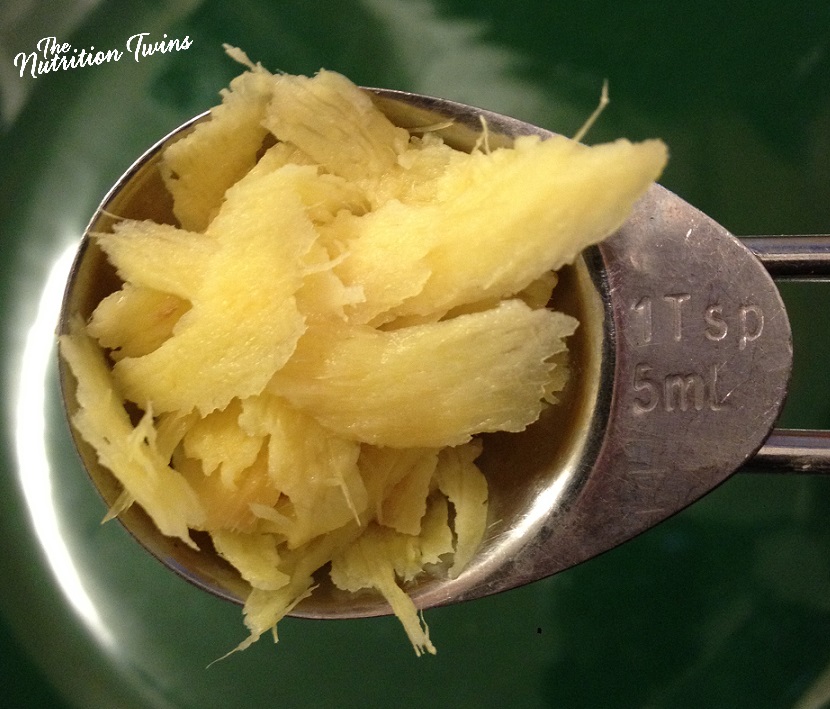
Add fresh or frozen berries into oatmeal or yogurt, or have a bowl for dessert. Berries contain the phytochemical C3G that helps to shut down inflammation, increase fat burning and decrease hunger.
Add green tea to your daily routine. Make a snack habit of this protein and antioxidant filled Matcha Green Tea Smoothie and get the metabolism and blood sugar stabilizing benefits as well as the inflammation-taming benefit from the C3G in the berries.
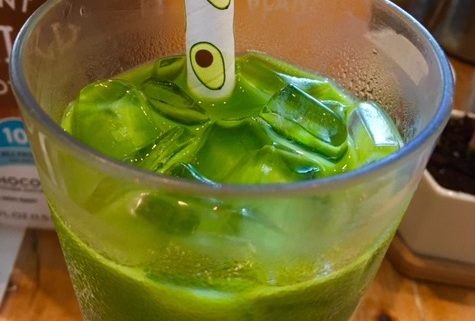
If you feel like the weight loss is not coming and you are struggling, you don’t need to struggle! Let us tell you about Kelly…
How do our clients incorporate pieces of the best daily routine to lose weight for good?
When Kelly first came to us, she was very frustrated. She said that she knows everything about nutrition since she’s read countless articles about it– that’s even how she found us–she saw our recommendations in some magazines.
She said,
“I’m depressed, I don’t even recognize myself in the mirror. And I don’t think I can lose weight anymore…
I’ve tried EVERY DIET out there, intermittent fasting, keto, Weight Watchers, you name it… and NOTHING WORKS.”
But it turns out she WAS losing weight, it was just short-lived. She’d want to go to dinner with her friends. It didn’t work with her intermittent fasting, or her keto diet so she couldn’t continue. We told her:
“of course, you can lose weight but you’re trying to fit your lifestyle into a cookie-cutter diet. And that diet doesn’t care what your hormones are, whether you want to go to dinner with friends, or anything else about your lifestyle.”
Her daily routine to lose weight was then set up!
We took a deep dive into understanding her habits and lifestyle and started to work some of the habits we mentioned above into her lifestyle, like drinking the water immediately when she woke up, (she kept her coffee too), adding deep breathing in as well as other steps that made her lifestyle very anti-inflammatory. Within three months she lost 15 pounds… and 9 months later lost 30 pounds and kept off. To this day she’s kept the weight off and says she can’t believe how easy it was.
And to think…she thought she was someone who couldn’t lose weight! Of course, she can! She just was trying to fit her life into the wrong diet! She just didn’t have a specific plan for HER. And when we worked with HER unique lifestyle, her UNIQUE hormones. her preferences, that’s when she got lasting results. And in fact, that’s when we found she was someone that needed breakfast. We helped her to realize that skipping it was spiking her cortisol and increasing belly fat.
If you’re struggling like Kelly was, you don’t need to struggle! Too much mental space is taken over in this world with stressful stuff… don’t let eating or your diet be one of them!
There is SO much that you can do. We’re offering a free discovery call where we can get a really good understanding of what’s going on with you and see how we can best help you with our high-touch, highly personalized 1:1 coaching!
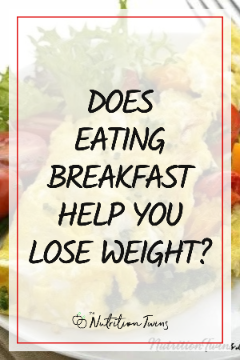

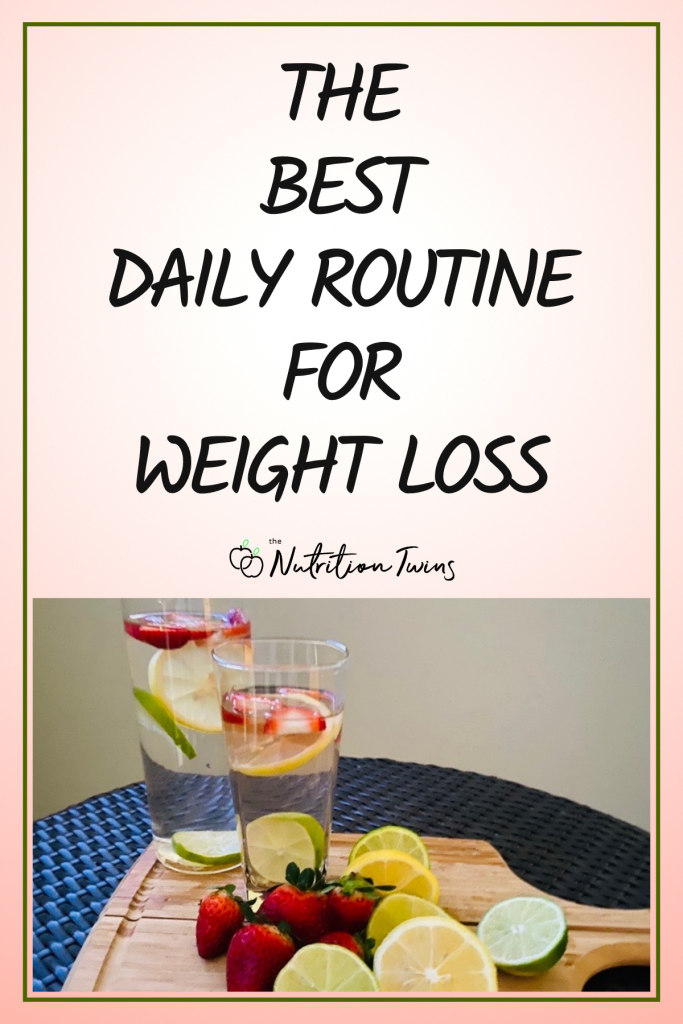

The post The best daily routine to lose weight for good appeared first on Nutrition Twins.



